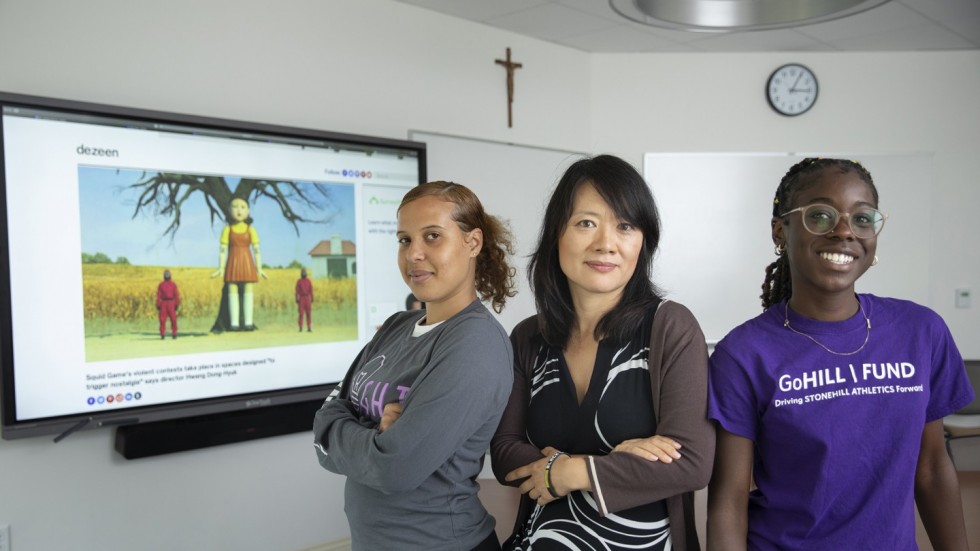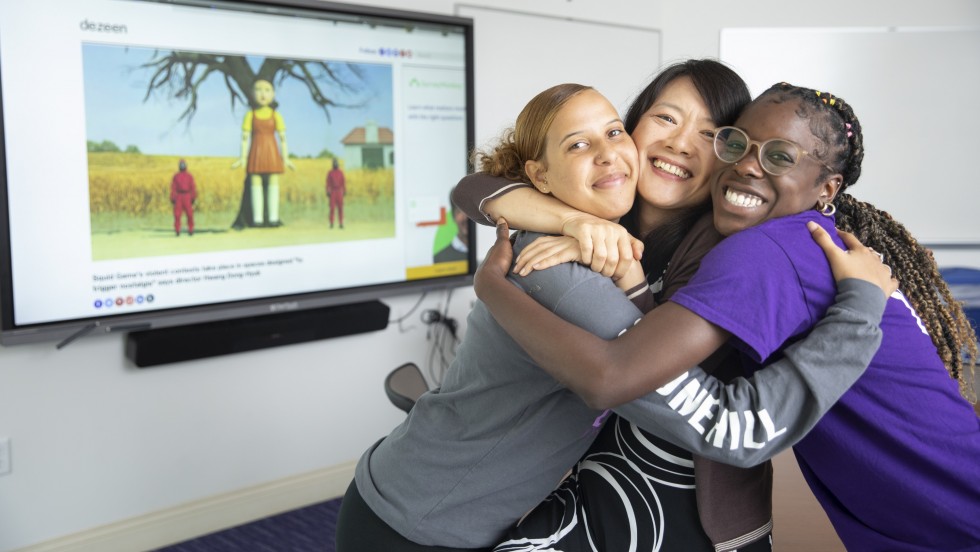
SURE researchers Gianna Barboza '23, Professor Jungyun Gill and Sadé Ratliff '23.
Exploring Race and Racial Solidarity Through K-Pop
Professor Jungyun Gill has fond memories of listening to Seo Taeji and Boys, a Korean boy band, while attending college in Seoul in the 1990s.
The group, whose music combines elements of hip-hop and heavy metal, rose to popularity during a time of transition for South Korea. The people of the region were beginning to break free of the limits imposed on them by the country’s dictatorship.
“It was a creative period of cultural exploration,” said Gill, chair of the Sociology Department. “We had a civilian president for the first time, elected by popular vote. People embraced freedom from tradition and ideologies.”
This newfound liberty gave way to a golden age of music, television and film. Eventually, this content was exported across the globe, leaving a massive cultural footprint in its wake. Korean media remains popular worldwide today, as exemplified by the acclaim of musical groups like BTS and Netflix series such as Squid Game.
Gill spent much of summer 2022 working with SURE scholars Gianna Barboza ’23 and Sadé Ratliff ’23 to investigate the so-called Korean Wave, a term denoting the international popularity of South Korean popular culture.
The researchers specifically examined the ways in which Korean pop music (K-pop) and TV dramas (K-drama) might impact people’s views on topics such as race and social activism. They interviewed fans of K-pop and K-drama across four racial/ethnic categories (Black, Latinx, Asian and White).
“We’ve reached out to people we know are interested in this media utilizing the snowball sampling method—we ask our interviewees if they know anyone else who might be interested in participating because they like Korean music or TV,” Barboza said.
The team’s conversations with their subjects have enabled them to assess whether fans of Korean media are more likely to support the #StopAAPIHate campaign. They have also examined whether fans have a favorable view of the Black Lives Matter movement, as K-pop borrows from Black culture.
Ratliff, who created her own Black Studies major through Stonehill’s Interdisciplinary Studies program, notes the gravity of this content and her team’s work is not lost on her or her collaborators.
“At the core of this research, we’re helping give people of color the agency to understand themselves and how they function in society,” she said.
Ratliff appreciates that her SURE research has allowed her to work with a group made up entirely of women of color.
“Building solidarity with one another through our common experiences has been enriching,” she said. “This team and this space we’ve created are very powerful.”
Stonehill Alumni Magazine
Fall ’22 | Winter ’23

